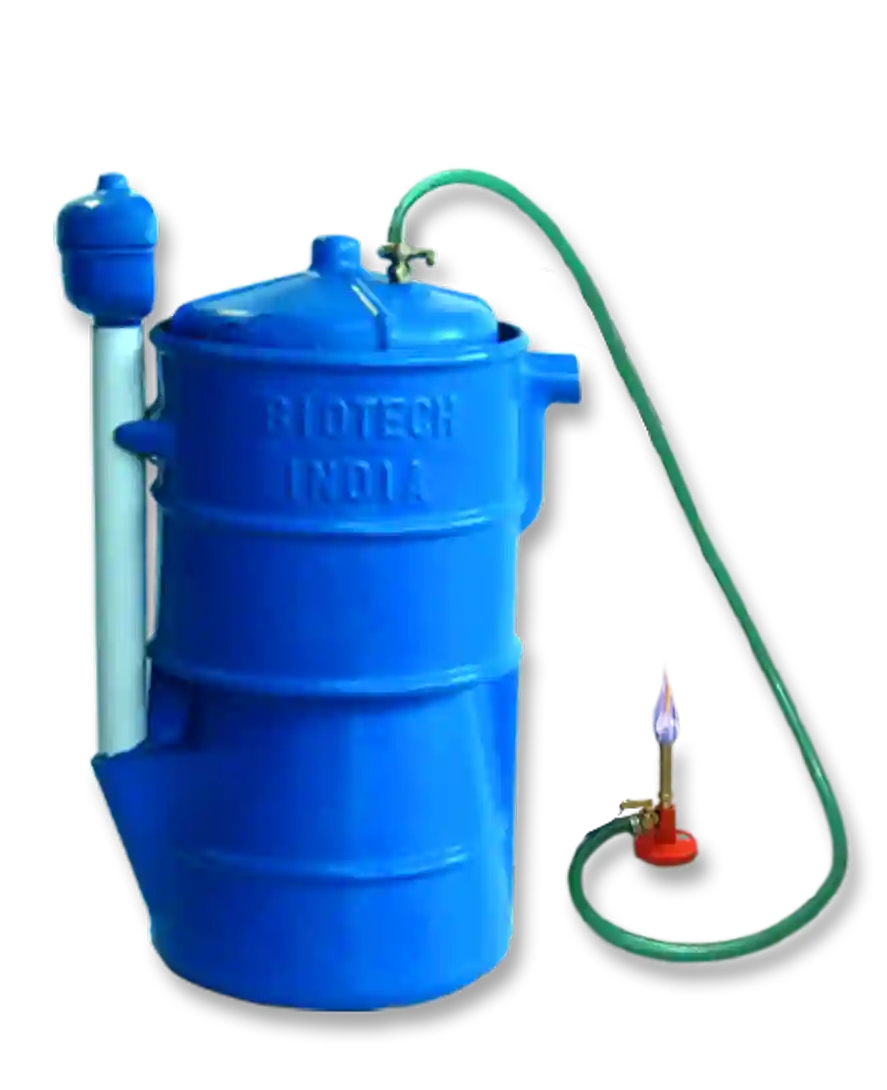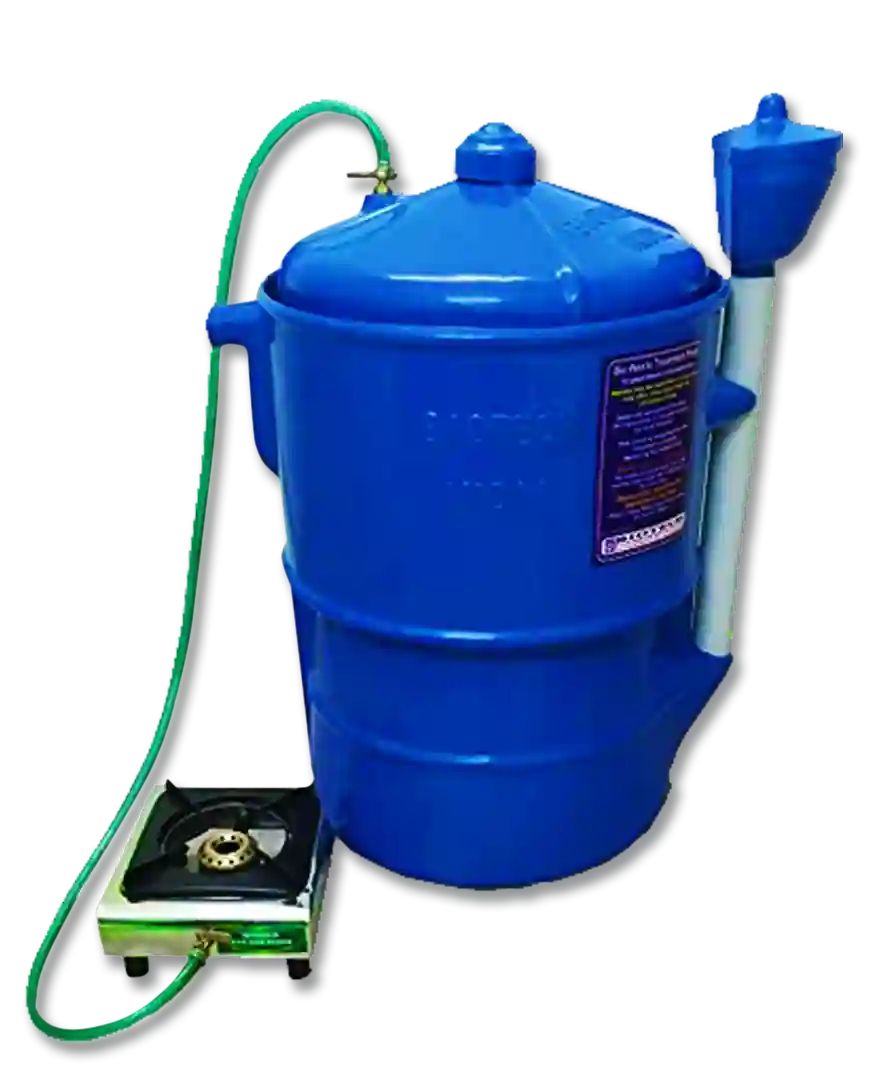Nano biogas plants developed by BIOTECH INDIA are scaled-down versions of larger biogas digesters, designed for smaller-scale applications. These miniature biogas plants are particularly useful for educational and research purposes because they allow for hands-on learning and experimentation with the biogas production process. The Nano Biogas Plants developed by BIOTECH INDIA Renewable Energy come in two different sizes to cater to varying research and demonstration needs.

The Nano 45 is the smaller of the two options, with a total volume of 45 liters. This compact size makes it highly suitable for small-scale experiments and educational purposes. It can be used in classrooms, laboratories, for demonstration purposes to show how organic waste can be converted into biogas. Due to its small volume, it's easier to handle, requires less space, and can be used to quickly test the biogas potential of various small-quantity feedstocks.
The Nano160, with a volume of 160 liters, is a larger version of the Nano45 Biogas Plant. This size is better suited for more extensive research studies where a larger volume of feedstock needs to be tested, or for demonstrations to larger groups. It can still be used in a variety of settings, including educational institutions, research centers, and for community demonstrations. The Nano160 allows for a more comprehensive study of the biogas production process and can handle a greater variety of feedstock types and larger quantities than the Nano45.

Both sizes of the Nano Biogas Plants are designed to function similarly, allowing for anaerobic digestion of organic matter to produce biogas, which is a combination of methane, carbon dioxide, and other trace gases. The choice between the two sizes would depend on the specific requirements of the study, research scope, available space for the setup, and the audience size for demonstrations. The Nano45 is more convenient for quick and small-scale experiments, while the Nano160 is better for more detailed research requiring larger amounts of feedstock.
1. Educational Tool : They serve as excellent educational tools for students and the general public to understand how biogas is produced, how anaerobic digestion works, and the benefits of biogas as a source of renewable energy.
2. Research and Development : Researchers can use these small-scale digesters to conduct experiments on the digestion process, feedstock optimization, and biogas production efficiency. It's easier and more cost-effective to test different variables on a small scale before scaling up.
3. Feedstock Trials : Various types of organic waste can be tested as potential feedstock for biogas production. Nano biogas plants make it practical to experiment with different ratios, mixtures, and preprocessing methods to see what yields the most biogas.
4. Demonstration Purposes : Nano biogas plants can be showcased in community centers, schools, or local fairs to promote the concept of renewable energy and waste management. They can demonstrate the practicality and benefits of biogas in a tangible way.
5. Portability Due to their small size, these units can be easily transported to different locations for demonstrations or educational workshops.
6. Low Risk : Working with a smaller reactor minimizes the risks involved in handling and digesting organic waste. It's safer for educational environments where safety is a priority.
7. Cost-Effective : They are less expensive to build and maintain compared to full-scale biogas plants, making them accessible for educational institutions and small communities.
8. Fertilizer Production : The by-product of the biogas process is a digested slurry that can be tested and used as a fertilizer, providing a complete cycle of waste to energy and then to plant nutrition.
Overall, nano biogas plants are a practical solution for those looking to explore the potential of biogas technology on a small scale, whether for education, research, or demonstrating the circular economy in action. BIOTECH INDIA's contribution in this area helps to foster a greater understanding of renewable energy and waste management, potentially leading to more sustainable practices in the future.